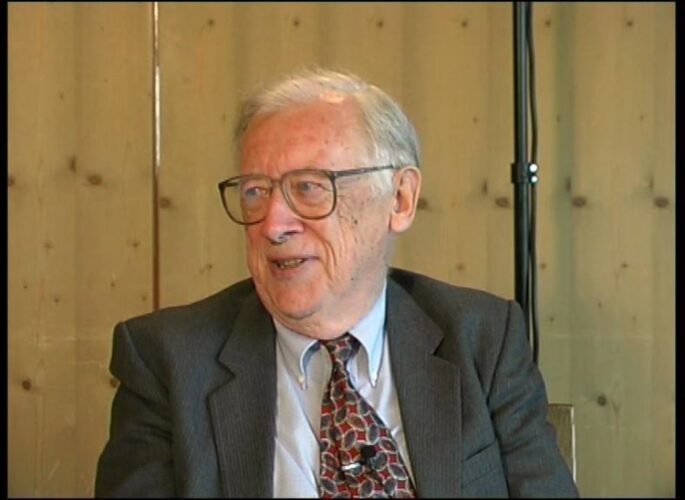John Pople (31 October 1925 – 15 March 2004) was a British theoretical chemist. He was awarded the Nobel Prize in Chemistry with Walter Kohn in 1998 for his development of computational methods in quantum chemistry.
Life and Career
He was born on 31 October 1925, in Burnham-on-Sea, Somerset, England. He completed his bachelor’s degree in 1946 and went on to earn a Ph.D. in mathematics from the same institution in 1951.
His Ph.D. research was on the application of group theory to quantum mechanics, which was supervised by Nobel laureate Max Born. However, Pople’s research interests soon shifted toward theoretical chemistry, and he began working on developing computational methods for quantum chemistry.
In the 1960s, Pople developed the Gaussian method, which is a computational approach to quantum chemistry that uses Gaussian functions to represent the wave functions of molecules. This method allowed for more accurate predictions of molecular properties and made it possible to study larger molecules than had previously been possible. The method is still widely used today in computational chemistry.
Pople also contributed to the development of the Density Functional Theory (DFT), which is another widely used computational method in chemistry.
He was also a mentor to many young scientists and trained several generations of computational chemists who have gone on to make their own contributions to the field.
He was also a Fellow of the Royal Society and a member of the US National Academy of Sciences.
He died on 15 March 2004, in Chicago, Illinois, U.S.
Award and Legacy
He was awarded the Nobel Prize in Chemistry with Walter Kohn in 1998 for his development of computational methods in quantum chemistry.
He received other awards including, the Royal Medal from the Royal Society in 1984, the Copley Medal from the Royal Society in 2002, and the Foreign Member of the National Academy of Sciences in 1986
Pople received numerous honorary degrees and awards, including honorary doctorates from the University of Paris, the University of Edinburgh, and the University of Oxford, among others.

